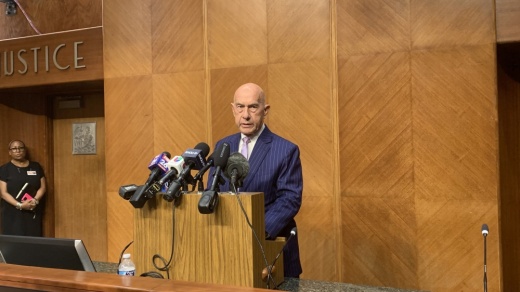The background
Short-term rental properties are typically found on platforms such as Airbnb. The ordinance defines STRs as “dwelling units” or any portion of a dwelling unit that is rented out for less than 30 consecutive days, excluding hotels, bed and breakfasts, and any other group homes.
In Bellaire, West University and Meyerland, there were approximately 1,096 listings as of October 2024, according to previous Community Impact reporting. As of April 9, Houston overall has over 14,500 listings, according to AirDNA, a company that analyzes short-term rental data.
Houston officials began discussions on regulating STRs when nearly 40 residents had complaints after a public comment session in March 2024, leading to council members Sallie Alcorn and Amy Peck requesting the administration to evaluate the feasibility of registering STRs in Houston, according to previous reporting.
The ordinance would make it unlawful to operate an STR without a valid registration certificate, with an annual fee of $275.
The ordinance would also allow Houston to enforce other regulations, such as:
- Noise and sound regulations
- Building and neighborhood protection requirements
- Waste and litter requirements
- Fire code provisions
- Hotel Occupancy Tax payment requirements
- Listing and notice requirements
- Emergency contact requirements
Registration certificates could be revoked for several reasons, including:
- If the owner or operator is convicted of a major criminal offense
- Multiple violations of the city’s sound ordinance
- Multiple nuisance violations
- Building code violations
- Failure to pay HOT
Council member Julian Ramirez first tagged the ordinance April 2 to review proposed amendments made by him, council member Abbie Kamin and Alcorn.
The amendments include:
- Amendment 1A/1B: change the ordinance language to place the burden to apply for a certificate of registration on the operator
- Amendment 2: allow the city to revoke the registration of all STR units in a multifamily property after 25% of the units have had their licenses revoked
- Amendment 3: limit the number of short-term rental units in a multiunit complex
- Amendment 4: require STR operators to receive training on recognizing human trafficking, which is required for hotel operators
- Amendment 5: define the term “platform” as not to include the Houston Association of Realtors Multiple Listing Service, since no short-term rentals are rented directly on it
The item returned to the agenda April 9 but council member Letitia Plummer tagged the ordinance again due to her opposition to the proposed amendments. In a letter to Mayor John Whitmire, Plummer said she has “deep concern” over the proposed amendments because they would place additional burdens on small business owners who operate STRs throughout the city.
She pointed specifically towards amendments 1A, 1B and 2, and said how they would make it difficult for those who don’t have the resources to navigate constant re-registration processes or withstand the threat of losing all operating licenses over minor issues.
“As a council member who has long been a steadfast advocate for Minority and Women-Owned Business Enterprises, I feel compelled to raise awareness of how these changes would disproportionately harm a segment of our community that has already endured generations of economic disadvantage,” Plummer said in her letter. “Let Houston be the city that champions the success of all its citizens, not one that enacts policies that make prosperity out of reach for too many.”
Kamin and Alcorn are supporters of the ordinance, with Kamin pointing to bad actors as part of the reason why the ordinance and amendments are needed.
“We have several bad actor multifamily units that are creating a public safety risk and a public nuisance in the surrounding neighborhood and for the city,” Kamin said.
What’s next?
Kamin said she will work with the city’s legal department and the Administration & Regulatory Affairs Department to revise the language and recommendations laid out by city officials before next week.
One of the amendments Houston officials are working on revising includes Amendment 2, which Assistant City Attorney Rashaad Gambrell said during a Quality of Life meeting could draw criticism as the city doesn’t have the data to back up the 25% threshold. Instead, he recommends considering if “two or more” units lose their registrations in a multifamily property.
Houston City Council is expected to vote on the ordinance and the amendments during the next City Council session on April 16, while Kamin said she will have the revised amendments by next week.





